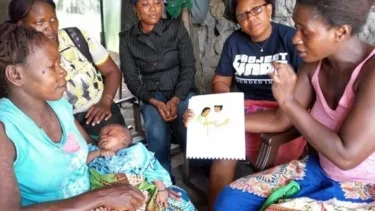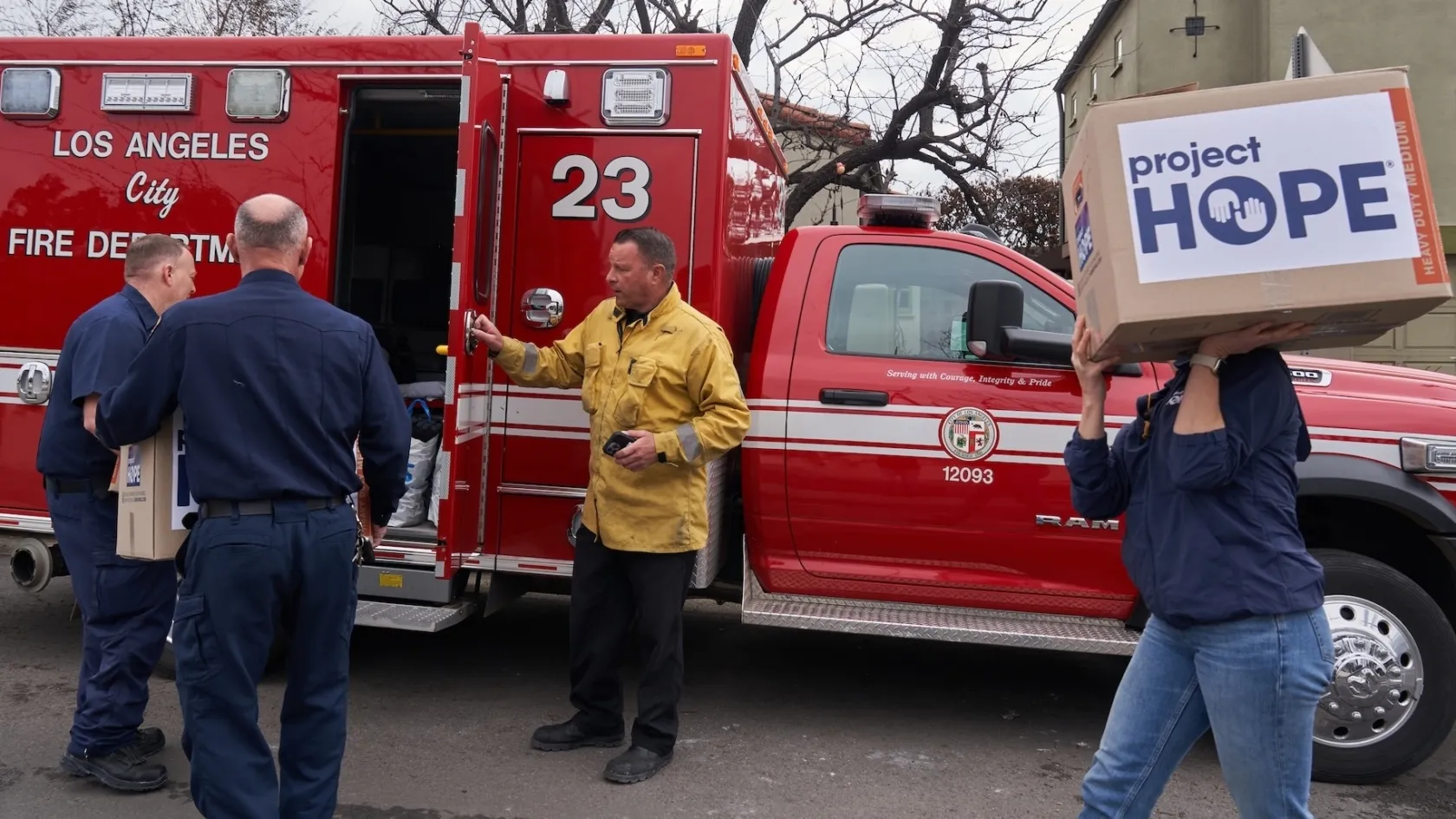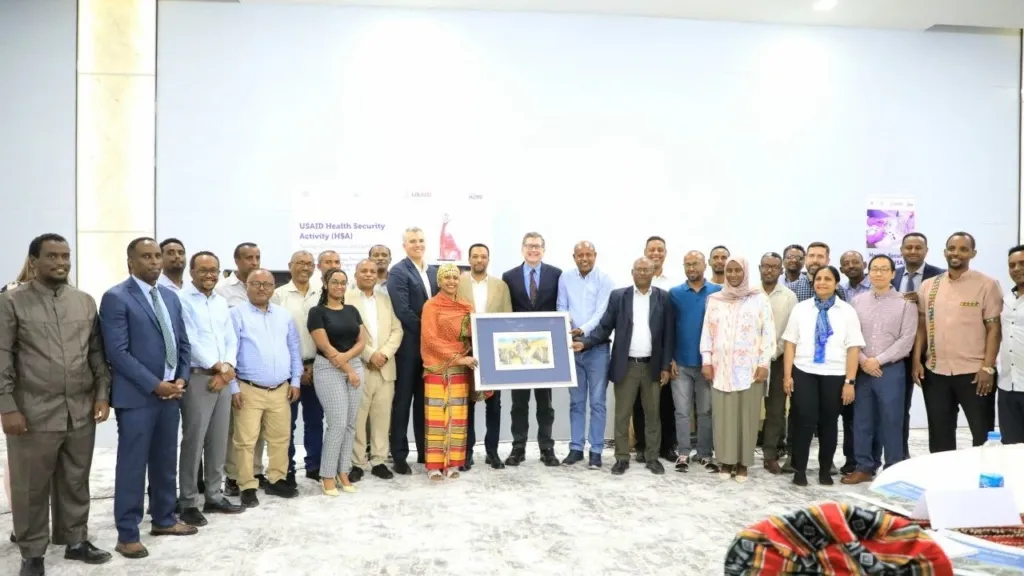Simple Intervention Helps Low Birth Weight Babies Thrive
Twin brothers James and Joseph are a beautiful example of how this care works. Born premature in September, the babies were just 1.9kg (4.1 pounds) and 2.0kg (4.4 pounds) at birth.

Sierra Leone has the highest maternal mortality ratio in the world and is also plagued with an unacceptably high newborn mortality rate at 82 per 1,000 births. 80% of all newborn deaths in Sierra Leone are caused by preterm birth, intra-partum related causes such as asphyxia and newborn sepsis. This frightening health crisis for women and babies was exacerbated by the recent Ebola outbreak. Fear of contracting the virus resulted in a decrease in the utilization of maternal and child health services. The outbreak also led to the death of 221 health care workers, further complicating access to services.
Project HOPE is working to solve this tragedy of preventable newborn deaths by establishing and building the capacity of the Ola During Children’s and Bo District Hospitals in Sierra Leone following a continuum of care approach. Project HOPE helped establish the first two Kangaroo Mother Care Units for care of preterm and low birth weight infants in the country at Ola During Children’s and Bo District Hospitals providing renovations, equipment, supplies, staff training and continued mentorship through expert volunteers and consultants, and currently through the engagement of a technical coordinator and mentor midwife previously trained by Project HOPE. Project HOPE also trained national master trainers in essential newborn care, and supervising the cascade of training to district level trainers who in support of the Ministry of Health and Sanitation efforts to primary care level maternal, neonatal and child health providers in 2017.
Posted By Banneh Daramy, a Sierra Leonean midwife working for Project HOPE
Bo city is the second largest city in Sierra Leone after the capital of Freetown and the second location chosen for Project HOPE’s Kangaroo Mother Care (KMC) initiative, a low-technology intervention for care of small babies for early, prolonged and continuous skin-to-skin contact between the mother and her baby for thermal care with support for positioning, feeding and prevention and management of infections and breathing difficulties by trained health workers to ensure premature and low weight babies thrive instead of perish. Twin brothers James and Joseph are a beautiful example of how this care works. Born premature in September, the babies were just 1.9kg (4.1 pounds) and 2.0kg (4.4 pounds) at birth. Ruth, a first time mother, delivered the babies by cesarean section after finding out just prior to their birth that she was carrying twins and that they both were in breech position.
“We had long wished to have children and it all happened like a miracle when I learned that my wife had conceived. Because of the inadequate medical facilities, we only learned right before the labor began that my wife was pregnant with twins and that both babies were in breech position. Due to the increased risks associated with twins, we decided to opt for a hospital birth.”
– Bockarie, Ruth’s husband
After Ruth recuperated from the surgery, I told her about the newly established Kangaroo Mother Care program, that allows mother and baby to stay in a facility connected with the hospital for several days after the birth to learn about the KMC technique which promotes keeping the baby in skin-to-skin contact with the mother to keep body temperatures stable, and also promotes frequent feedings.
Because of the cesarean section, Ruth was not ready to immediately practice Kangaroo Mother Care with the twins, so the grandmother stepped in to perform KMC after learning all the protocols in the newly established unit. During the first two days, Ruth was also unable to produce breastmilk and so the trained health care providers at the center arranged for the therapeutic feeding center to provide formula milk for the babies.
The babies were fed frequently as the grandmother performed the KMC. Soon Ruth started producing breast milk and was ready to take over KMC herself. The babies’ weight and vitals were constantly monitored and Ruth was supported with guided to learn the KMC method. With the constant monitoring and feeding and KMC care, the babies gained weight and grew stronger and were able to be discharged to home just six days after their birth.
Two days later, I made my first home visit to the new family. Ruth was still continuing the KMC and the newborn brothers, James and Joseph, continued to improve. I encouraged Ruth to continue the exclusive breastfeeding and the KMC procedure. I also advised her to adhere to the medical advice given to her in the hospital to bring the babies back to the hospital for monitoring on a regular schedule.
I visited the home again a few weeks later and observed the continuous improvement and Ruth adhering to all the advice given. While the babies continued to grow and thrive, on the third home visit I noticed Ruth had missed one of the scheduled hospital appointments, so I was able to take them to the hospital for examination and monitoring.
James and Joseph were now up to 2.55kg (5.6 pounds) and 2.94kg (6.5 pounds) respectively.
Monitoring will continue.
“We thank God for the gift our babies,” Ruth told me. “We appreciate the encouragement, sense of commitment of the hospital staff, particularly Project HOPE in providing the much needed assistance and support in ensuring that our babies developed from the low birth weight to the healthy weight babies. The KMC Unit was a blessing and the initiative is quite commendable. I will give this as a testimony to other mothers who deliver small babies and I will endeavor to encourage them to visit the KMC unit at the Bo Government Hospital.”
Project HOPE has set up the two Kangaroo Mother Care centers in Sierra Leone. Just through June through October 2017, 135 babies have benefitted from the KMC unit in Ola During, Freetown and 39 babies have been helped by the KMC unit in Bo District.



